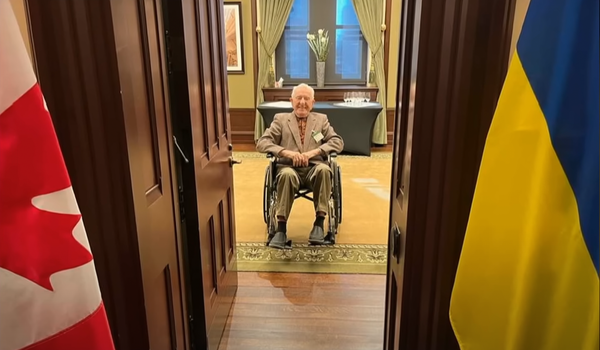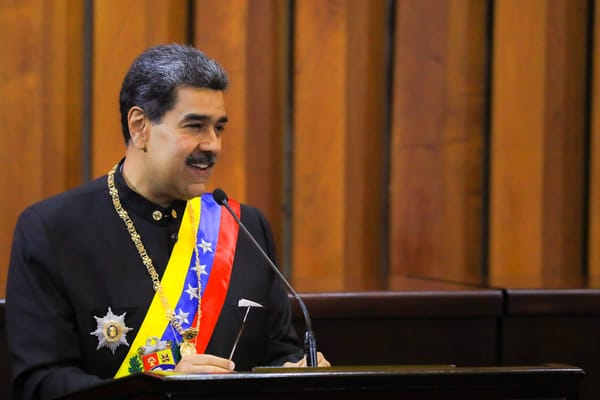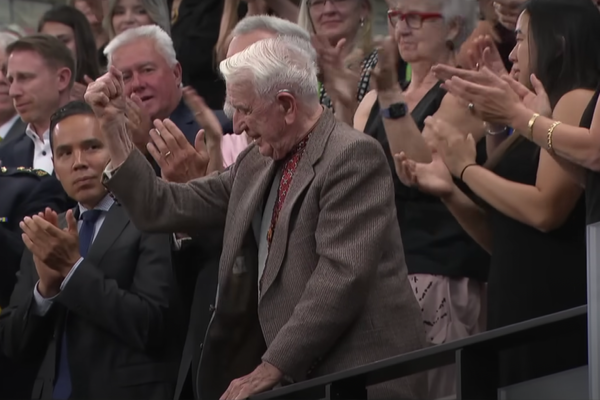Situated near the top of Mount Royal, the Allan Memorial Institute (informally known as the “Allan”) is a grim, Victorian-style building which used to be a psychiatric institute and research facility. Founded in 1940, it currently offers outpatient psychiatric services for the Montreal General Hospital, as part of the McGill University Health Centre.
Even though many current and former McGill students believe the place might be haunted, the Allan is a facility that is still highly respected among Montrealers and Canadians more broadly.
But despite the multiple exposés that came out in the 1980s and 1990s, many are still unaware of the Allan’s dark past, or how an academic working at McGill received covert money from the CIA at the beginning of the Cold War to conduct experiments on unwitting patients as part of the infamous MKUltra program.
The Montreal experiments, led by Donald Ewen Cameron, saw many patients at the Allan subjected to torture methods, including high-voltage electroshock treatments, insulin-induced comas, sensory deprivation and large doses of hallucinogenic drugs like LSD.
More startling is the fact that findings from the Allan institute’s experiments are cited in CIA documents regarding so-called advanced methods of “interrogation on resistant sources.”
Many known MKUltra experiments were conducted at one of Canada’s most revered institutions, in one of the country’s most sinister and overlooked chapters in history.
The Pioneer of 'Depatterning'
Cameron was born in Scotland in 1901, and graduated with a psychology degree from the University of Glasgow in 1924. He began his career in the role of a resident surgeon at the Glasgow Royal Infirmary, but he made his way to Canada only half a decade later and hopped from place to place throughout North America and Europe until 1943, when he settled down as the first director of McGill’s newly created psychiatric facility, the Allan Memorial Institute.
Before his time at the Allan, Cameron had already begun establishing a reputation as an avant-garde psychiatrist. During a brief stint from 1938 working at New York state’s Albany Medical College as a professor of neurology and psychiatry, Cameron began researching sensory deprivation and memory.
It is likely that while in Albany, Cameron established his relationship with Allen Dulles, a man who was slowly climbing his way up the ranks within the U.S. Office of Strategic Services (OSS). In 1945, Dulles – by then the head of the OSS – personally recruited Cameron to attend the Nuremberg trials and assess Rudolf Hess, a former top-ranking Nazi whom Dulles was convinced had been brainwashed.
Cameron and Dulles kept in contact until Dulles became head of the newly founded Central Intelligence Agency (CIA) at the beginning of the Cold War. In 1957 – well into Cameron’s career at the Allan – the CIA began funding “Subproject 68,” McGill University’s heavy-handed contribution to the CIA’s brainwashing and mind control program, MKUltra.
Cameron commuted from Lake Placid, New York, to Montreal every week, and was paid more than $500,000 from 1950 to 1965 to carry out MKUltra experiments, sponsored by the American and Canadian governments alike, on approximately 80 unwitting patients.
Cameron believed that rather than being a realm for exploration and analysis, the psyche was a complex series of interacting patterned mechanisms that could be disassembled and reassembled at will by a skilled practitioner.
This belief led Cameron to create a practice that he called “depatterning,” a process of inducing complete amnesia in a patient so that the psychiatrist could recover and reprogram their memory in such a way as to alter their behaviour beyond recognition.
Given Cameron’s ambition to reprogram the human psyche, a process like “depatterning” was something to be achieved by any means necessary, regardless of extent or extremity. Patients at the Allan were locked in their rooms, placed in the dark and given large doses of psychedelic drugs for multiple days — and in some cases weeks.
Once Cameron found the patient to be sufficiently “depatterned,” he began a process that he called “psychic driving.” His theory was that once the psyche was demolished, it could be rebuilt entirely.
To achieve this, Cameron would force patients to listen to loops of personalized audio clips which reaffirmed whatever message he intended to engrain in the patient’s mind. For the patient, this could go on for days, weeks or even months.
A Legacy of Cruelty
As Harvard University historian Rebecca Lemov writes in Brainwashing’s Avatar: The Curious Career of Dr. Ewen Cameron, “[t]hat Cameron… did not always succeed in the Humpty-Dumpty task of putting patients back together speaks to the gap between ambition and reality.” Rather than being “reprogrammed,” many of the Allan’s patients suffered debilitating health effects for the remainder of their lives.
Take, for example, the case of Charles Tanny. In the spring of 1956, Charles was admitted to the Allan because the right side of his face had started to hurt.
Although doctors diagnosed Charles with a pinched nerve, they operated under the assumption that the root of his injury was psychological. In an interview with The Maple, Charles’ daughter, Julie, said that during his seven-week stay at the Allan under the care of Cameron, her father was “put into an insulin coma; [they] ran tape recorders under his pillow and reduced him to a five year old in diapers.”
Charles’ health complications reached a climax in 1977, when he was admitted to hospital after suffering a massive stroke. “He was only 61 years old,” Julie explained. “He didn’t have a blood clot, and there was really no reason [the medical professionals] could see for him to have such a debilitating stroke at that age.”
Julie is now the leading plaintiff in a class-action lawsuit against the McGill University Health Centre, the Canadian government and the CIA.
Working with a group called the Survivors Allied Against Government Abuse, the lawsuit describes Cameron’s tactics as “nothing more than an electronic lobotomy,” arguing that he left most of his patients unable “to function in society and within their families.”
Julie’s lawsuit application was filed in 2019, and there is an appeal hearing date for the case on March 30. Despite making some progress, Julie said she feels bogged down by the Canadian government’s painstakingly slow legal procedures: “It feels as though they are waiting for us all to die off.”
Although Cameron abruptly left his position at the Allan in 1964 amid increasing skepticism about his work, his findings have become immortalized in security services across the world today.
Some of the most direct examples can be found in what is commonly known as the CIA’s “torture manual,” the Kubark Counterintelligence Interrogation Handbook.
The manual – which was published in 1963 and is now readily available online – cites “[a] number of experiments conducted at McGill University” and frequently alludes to Cameron’s techniques. In an especially disturbing portion regarding sensory deprivation, the manual notes that “[r]esults produced only after weeks or months of imprisonment in an ordinary cell can be duplicated in hours or days in a cell which has no light, which is sound-proofed, in which odors are eliminated.”
While the Allan might have revolutionized the world of psychological torture, there is no apparent evidence of any appetite to acknowledge and raise awareness of this legacy through McGill’s curriculum. The McGill University Health Centre and the Royal Victoria Hospital have denied responsibility for their involvement in a written statement to the public, saying Cameron was not their employee.
“The McGill University Health Centre acknowledges that Dr. Donald Ewen Cameron carried out experiments at the Allan Memorial Institute during the ’50s and ’60s,” the statement reads. “The research attributed to him continues to be controversial, and its consequences, unfortunate. The courts have already established that the Royal Victoria Hospital was not considered, by law, the employer of Dr. Cameron; at the time, he exercised his profession in an autonomous and independent manner.”
The McGill University Health Centre declined a request for comment from The Maple as the matter is currently before the courts.
To date, neither the Canadian government, the CIA, McGill, nor the Royal Victoria Hospital has issued a formal apology.
Gen Auclair is a recent graduate of McGill’s psychology department with an interest in counselling. Even though they spent multiple years at McGill pursuing their undergraduate degree, it was only in the latter portion of their time at the university that they found out — during a casual conversation with a family friend from Baltimore — about the Allan institute’s experiments.
In an interview with The Maple, Auclair said the Allan’s past was not once brought up by fellow students or professors during their time at McGill.
“I think it would be nice to see the school take accountability, and this should be acknowledged as a learning opportunity, especially in [psychology] classes,” they explained. “Based on the conversations I haven’t had about [the Allan’s past], I would assume that a lot of people don’t know about it.”
Spencer Nafekh's work explores the intersection of arts, culture and politics. He has an undergraduate degree from Concordia University's english and creative writing program, and is currently finalizing a master's specialization at Carleton University’s journalism program.
Go deeper
Here are some more historical explainers from our archives
Understanding Canada’s Counterinsurgent ‘Peacekeeping’
Since the end of the Cold War, Canada’s peacekeeping operations, although never particularly peaceful, have taken a more explicitly violent turn — especially across Africa and the Caribbean.
The Bloody History of Canadian ‘Peacekeeping’
Canadian Liberals have long celebrated this country’s history of “peacekeeping” as one characterized by upholding a benign and humane alternative to war. But in reality, the difference between war and “peacekeeping” is hazy.
Top story this week (from Passage)
'I Don’t Trust Global News’ Reporting On Han Dong'

"The articles by Sam Cooper rely on anonymous CSIS sources and fail to confirm allegations or even address inconsistencies."
Catch up on our latest stories
- Conservative Poll Lead Shrinks To Lowest Margin Since Last August.
- Top Ministerial Advisors Asked Staff To Delay Statement Mourning Palestinian Journalist Because of Queen’s Funeral.
- Podcast: How B.C. Governments Opened Up Long-Term Care to Private Corporations.







